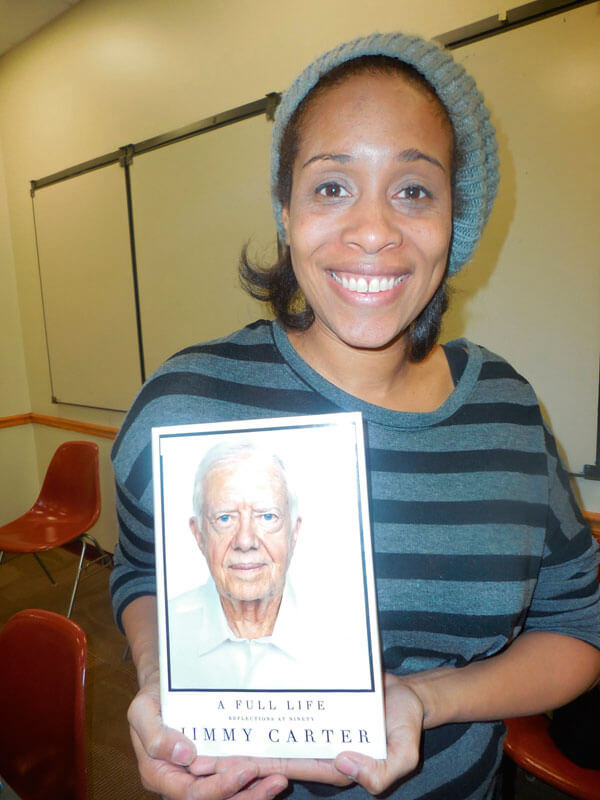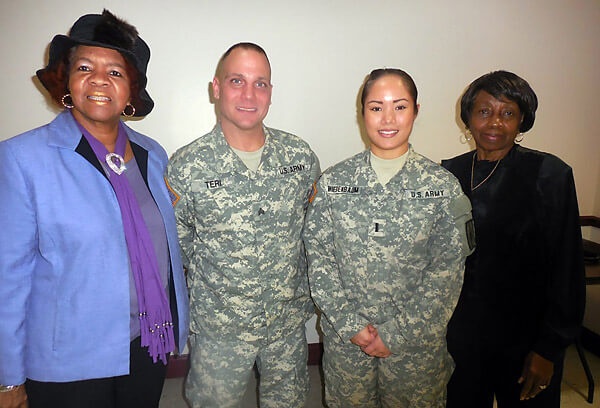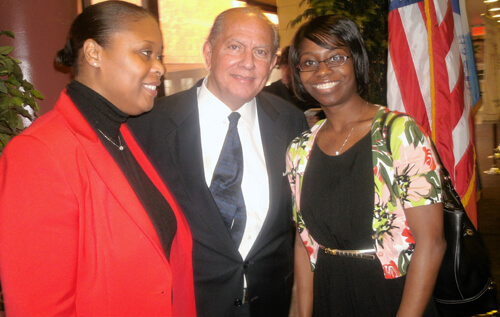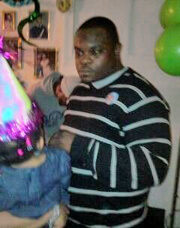In this Caribbean venue of Haiti in 1994, there was an emergency. In Haiti, the elected leader Jean-Bertrand Aristide had been in exile in 1991. General Raoul Cedras was the replacement leader. Three years later, President Clinton wanted Aristide to return to power. He prepared for “thirty thousand American military personnel as an invading force,” according to President Jimmy Carter in his latest book “A Full Life: Refections at Ninety (Simon and Schuster: 2015) General. Colin Powell collaborates with him in a conciliatory process to prevent military intervention. President Clinton agreed to a peace strategy. After two days of mediating unsuccessfully in the capital of Haiti between President Aristide and Cedras, President Carter asked his wife Rosalyn to reach out to her friend, Yannick,the wife of Cedras. After all, Cedras had prevented Aristide from an assassination attempt when the Caribbean leader was deposed. The strategy proved successful.
Meanwhile, as Cedras agreed to “stand alongside the the American general and welcome U.S. troops if their arrival was peaceful and if the Haitian military personnel were treated with respect, Brigadier General Philippe Biamby, rushed in and announced that President Clinton had launched fifty-two airplanes from U.S. military bases loaded with paratroopers, headed to Haiti.”
The 39th president of the U.S. in his compelling, full-of disclosures, eye-opening book, revealed that during this intense negotiation settlement, he located a reasonable foreign country for Cedras and his family to relocate. The agreement was translated into French, as requested by Cedras. At the time, President Carter recalled that during the expeditious execution of the agreement, “American planes were halfway to Haiti, but Clinton ordered them to return to their base and the crisis was resolved. Unfortunately, Carter acknowledges, in his latest memoir, that Aristide’s return to Haiti was a disaster.
The 91-year-old former U.S. president, current, successful battle with brain cancer, brings a striking, precise and grander historical version of decade-old ambiguous moments in history. We learn that the team of Warren Christopher, Hamilton Jordan, and Jody Powell told President Carter that Ambassador Andrew Young could no longer hold the position of ambassador. Young had met with a Palestine Liberation Organization representative. Carter admired Young and had selected him as ambassador because Young “was universally admired as a top lieutenant of Martin Luther King Jr., Carter stated.
Carter admits to calling the king of Saudi Arabia to prevent the leader of Uganda, President Idi Amin, from going forward with his plan to execute Christian missionaries in Uganda because Carter refused to apologize to him.
With grace and courage, the boy who toppled racism in his backyard in rural segregated Georgia to rise to the position as the leader of the world, candidly discloses: reports of prejudice against darker skinned Panamanians living in the Canal Zone, his financial rescue mission in saving New York, the Camp David maneuvering, his diplomatic efforts to have blacks gain full participation in Southern Africa, and his troubled relationships with the recently deceased German leader Chancellor Helmut Schmidt and the late Senator Ted Kennedy.
President Carter demonstrates in his latest book, he prefers to stand along with justice. Annie Mae Hollis, his parent’s former maid returned to Georgia from California to care for Carter’s terminally- ill father, suffering from complications linked to pancreatic cancer. His father died in the arms of Hollis, as she tended to his illness. Years later after his presidency, the former President builds Hollis’s home – collaborating with his wife, Rosalyn and Habitat for Humanity. .
“A Full Life: Reflections at Ninety,” is a must-have book. It is loaded with important unknown and or unlikely revealed historical facts. But more importantly, it is a profound reflection of an attempt to lead a pure and honest walk through life.



























